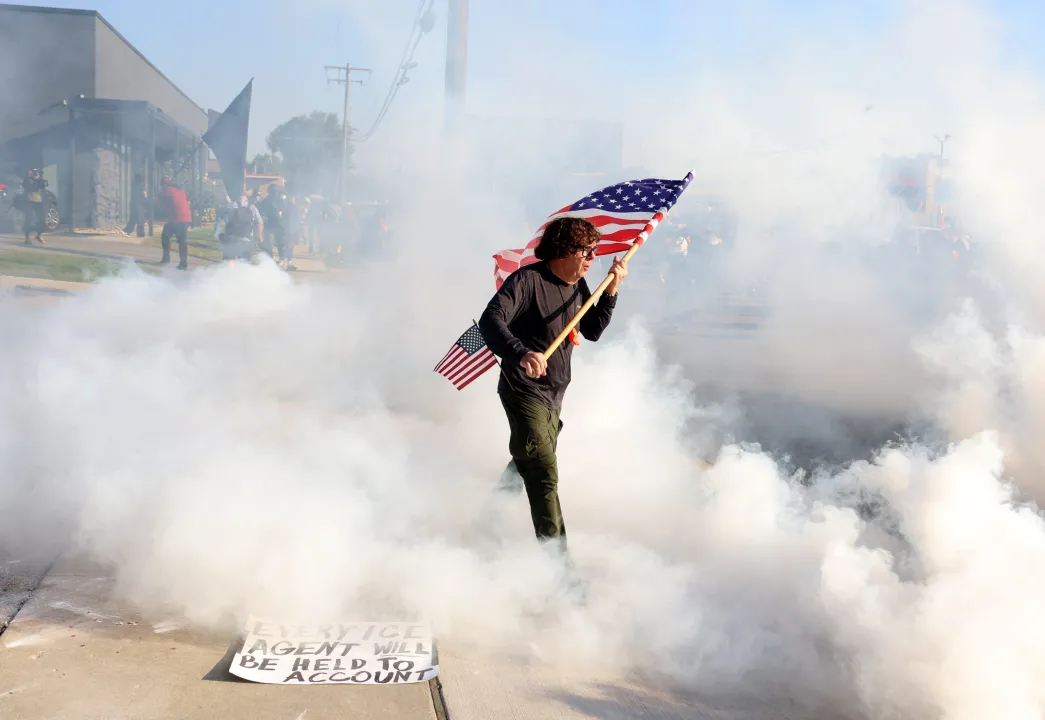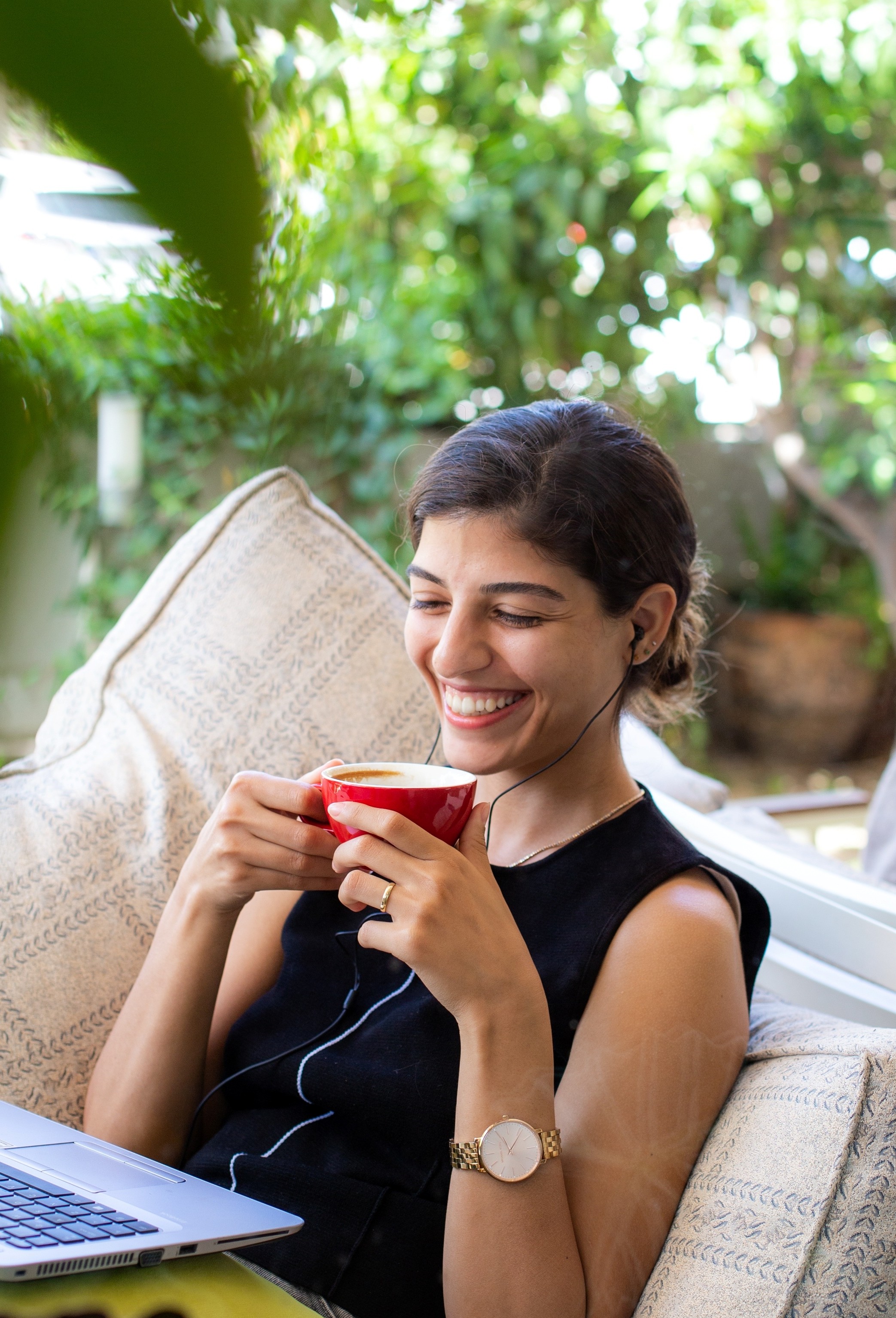Typically we think of trauma therapy as the point when we can finally exhale in a quiet, safe room after the crisis passes - the abuse, the flood, the combat, the violence, or whatever it was that left you feeling overwhelmed or unsafe.
But right now, for so many of us, the danger hasn’t passed. It’s woven into our daily lives. And in this reality, therapy feels less like post-battle debriefing and more like crouching shoulder-to-shoulder in a muddy trench.
Sometimes, the air is still. Sometimes, there’s incoming fire. We don’t know which we’ll get when we show up each week. But either way, we’re both there, dug into the earth, vulnerable, and tending to wounds in real time.
Therapy Sessions Right Now
I find myself watching things on the news each week and realizing how many of the people I care about are likely to be impacted. In just the past few months, clients have expressed fear, grief and anger in sessions related to:
🪨 lacking access to critical maternal or other medical care
🪨 discrimination and harassment at work, emboldened bullies and bigots, and what they are going to do now that they have just been fired/unfunded/laid off
🪨 recent tragedies like the floods, for which many people are still waiting on safety or support
🪨themselves or their loved ones being terrorized by ICE raids
🪨having to consider whether or not they need to leave a place we all call home to find someplace safer and more affordable for their families.
There are more but these have been coming up especially often in sessions lately. Overall it feels like we are experiencing the trauma of our failing institutions.
What Does This Mean for Supporting One Another?
When the very government and institutions we live under are harming us, trauma therapy is different. It’s not something happening in a bubble outside the chaos. It’s an act of care inside of it.
I feel the heaviness of the people I support - people whose wounds and fears in so many ways mirror my own. There is peace in showing up for them, in showing up more consciously for myself, and in seeing these practices in action. There’s relief, even refueling, in it. But that doesn’t mean it isn’t heavy.
It's really heavy.
And yet, I know how much it matters to be there to hold space for one another. To allow ourselves to feel for one another even if that feeling is terror or anger.
I’ve worked with many combat medics over the years, and I’ve been thinking about their descriptions today. They learn to lean into their training, to ground themselves and focus on doing what’s within their reach, even when it never feels like enough. Maybe none of us feel safe. But I believe it matters that we choose to keep helping anyway.
That’s what trauma therapy feels like in times like these. It’s not clean or distant like some of my past supervisors would prefer therapy to be. It’s layered, personal, cultural, communal, and messy.
It’s human beings tending to one another’s wounds while still under fire. And while the weight of it can be massive some days (today included), it is also the most radical act of hope I know.
Finding Your Own Acts of Radical Hope
You don't have to be a trauma psychologist to help people find resilience, community and healing in the face of trauma. I'd actually encourage you to consider ways you can still care, still give, and still do something you are uniquely good at right now. We all have different things we can offer.
🌱Are you someone with a great organizational mind who could help activist groups improve how they are applying their efforts and resources?
🌱Do you make a mean chili? That could be warming and comforting to a family who has been living in hotel rooms since the flood.
🌱Can you join peaceful demonstrations, help make signs, or share helpful information people need to know right now?
🌱Can you contribute to voices who are caring, refuse to see this as normal, and help raise money to feed children who are being starved?
🌱Are there people right near you that you can help... a pet you could foster, clothes or baby supplies you could donate, or maybe local groups who could use your particular skills (e.g., design skills for websites and campaigns, event planning skills for community resilience, financial planning skills for helping people face new lives and losses)?
If you are feeling for people in our communities too - if you stand against the cruelty we are seeing at state, national, and international levels too - I'd encourage you to brainstorm. You can make a Venn diagram. On the left side, list some of the people and causes you deeply care about. And on the right side, list resources or skills you can offer. What is within your capacity right now? What are specific skills or things you can do? In the center overlap, consider ways your unique skills and strengths could be helpful in these causes. Feel free to get specific, get creative, and get going.
Final Thoughts
I know it may feel like a lot right now. But feeling our grief, rage, and fear is also so important. It means we still care, that some part of us is still fighting (if not for a better country and world, then for ourselves and one another), and that something (or someone) matters to us enough that we are feeling it right now. I encourage you to let yourself feel it, and then honor those feelings with actions that feed your needs, values, and community.
In loving solidary,
Dr. Jackie Layton




